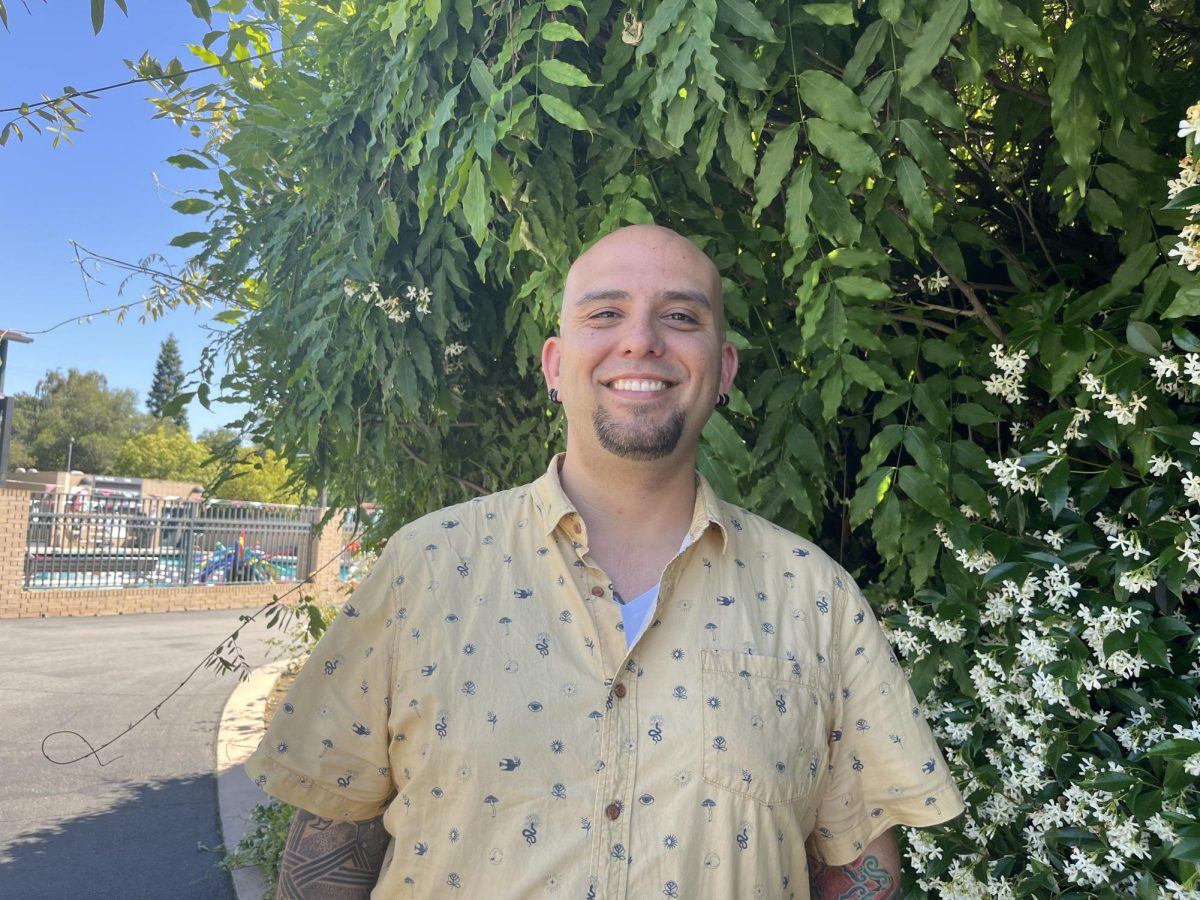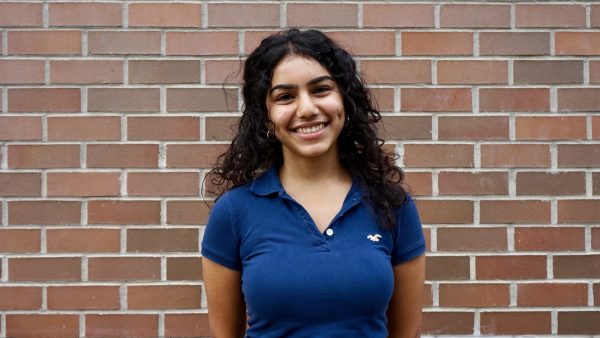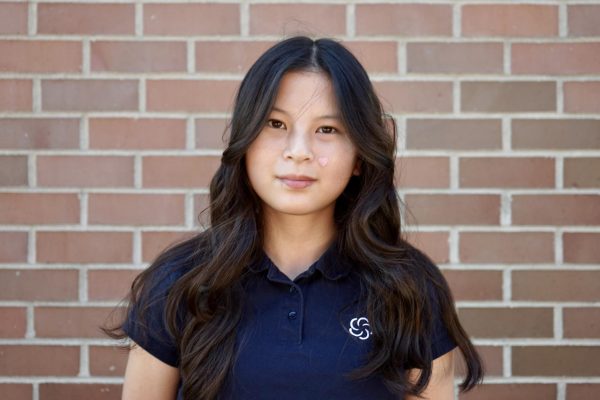Even if you haven’t been in a class of his, you’ve definitely heard history teacher Ricardo Carmona’s name before. Maybe you’ve seen him onstage during Upper School Meeting chowing down on Extra Spicy Buldak Noodles, or you’ve heard stories of him taking the upperclassmen in his Latin American History class on T&C runs.
Carmona has become a beloved teacher at Castilleja during his tenure as a Catalyst Fellow, teaching students Latin American History, Connecting History to Community and Introduction to the Social Sciences. Aside from teaching history, Carmona serves as a 9th grade advisor and the faculty advisor for the Middle Eastern Affinity Group. This summer, Carmona plans to relocate to San Diego to be closer to his family. His path hasn’t been linear, so we’re exploring his journey and where he’s landed today.
Carmona developed an interest in history early on. “I always wanted to be a historian, and I wanted to keep learning history,” he said. “I’ve never really doubted getting into history.” He recalled this interest being largely shaped by his childhood interests: “Ever since I was a kid, I was a big fan of historical movies and historical cartoons, so that kind of just got me really interested in [asking] questions about history, and trying to figure out what was real and what was not.” Historical cartoons and movies that Carmona recalled the most were the comics “Asterix” and “Tintin,” the film “The Bridge on the River Kwai,” as well as “all those movies from the 40s and 50s and 60s.”
However, the choice to actually become a teacher was far more complicated for him: “I kind of got into teaching history accidentally. [I] didn’t start teaching until grad school when I started teaching on the side, [and then I] kind of fell in love with the profession. [It’s] been eight years now, teaching in this world.” But although it may have “happened accidentally,” Carmona’s passion has always been history.
Carmona’s roots have shaped his experiences as a history teacher: “I design my classes for my younger self because I grew up in a very closed-minded community.” His experiences growing up in San Diego allowed him to “get comfortable with the grey.” He said, “[You] kind of see things in complex ways because of growing up at the border. I grew up in an area that’s neither fully American nor fully Mexican, so I kind of just grew up knowing that things are complicated. When somebody asks you, ‘Where are you from?’ or ‘What language do you speak?’, that’s a difficult question for a lot of us.”
Eventually, Castilleja brought him to the Bay Area: “I really liked [the school’s] mission, hence why I applied [for the fellowship].” He also enjoyed seeing the curiosity and interest that Castilleja students brought to his demo class— something that has become his favorite part of teaching here. “
With a deep understanding of how difficult examining the nuances in history can be, Carmona aims to make his classroom an accessible place where he can teach students different perspectives. “I was always rejected by people [later in life] because of where I grew up. [But] the people [from] the area where I grew up with tended to lean into that weirdness––[the] not being exactly one thing or another,” he said. “That transferred over to the way I see the world.”
Carmona’s ability to value different perspectives is something that many students admire about him. “MEAG was leading a really big project last year for a symbolic art installation, and it was during a very tough time…he was someone who helped me diversify my viewpoint so much because I grew up with a very specific viewpoint,” Zahra Rohaninejad ’25 said. “He was like, ‘I’m validating who you are, but also you need to open your eyes to these different realities that people are living’…That [had] a big impact.”
Before he taught history, Carmona held a variety of different jobs, ranging from bouncer to butcher. However, one stuck with him the most: bartending. “It teaches you how to talk to people,” he said. “When I worked as a bartender during grad school, [I learned] how to interact with people from different backgrounds, different personalities, different languages. It set me up in many ways to be a teacher––how to be comfortable with the randomness of life.”
These lessons he has learned are directly reflected in his approach to teaching students. One thing that students love about Carmona’s classes are his unique methods of teaching. “[Our class] is so much more like a conversation. He’s sitting on the desk, we’re in a circle, we’re just talking,” Rohaninejad said. “We’ll learn things about history that we would’ve never learned before.” Michelle Huang ’27 added, “Once we ask him a question, suddenly, he’ll just think of a lot of different points that relate to our question. From there, we can just keep on expanding into these topics. I learn about things that weren’t even on my radar before.”
As Carmona reflects on his experiences as a teacher and his goals, he hopes his students will take away just one thing: to always be yourself. “Don’t let others define you — you define yourself,” he said. “Be comfortable and happy with that.” When he looks at teaching from a personal perspective, Carmona wants people to “trust their instincts — there’s something there and they should follow that.” He added, “If there’s one thing history teaches you, [it’s that] there’s no one way to look at things. Rather, there are thousands. You should feel confident in your own interpretation of the past, but also in the present.”
This directly connects to Carmona’s approach to teaching equity in history education. As a Catalyst Fellow, he sought to honor folks from all backgrounds and stories, acknowledging that there is no thing such as ‘authority in history.’
“We have to take into account all stories; see a different path and give them credence. [We have to] make sure that we don’t accidentally reinforce the voices of the few elites at the expense of everybody else because those perspectives in history are [just] as important and bring us to vastly different places,” he said.
In order to better educate students on different viewpoints, Carmona believes we need to rework our current education system and zoom out to the institution of education as a whole. Carmona hopes that the education system will prepare later generations for not just the predicted future, but the future he hopes we can all reach — one where diverse perspectives are celebrated and taught. “Our current education system is broken,” he said. “I think more of us should be alarmed at how [it is] emphasizing the wrong things. We need to prepare younger generations to be flexible and critical thinkers rather than [having them] worry about whether they’re going to get a job.”
This summer, Carmona plans to move to San Diego to be closer to his family. “Overall, it’s a very bittersweet experience. I’m looking forward to being back home because I grew up in San Diego, [and] that’s where all my family is. I left 15 years ago and haven’t been back, so it will be nice going back to a place I know. The bitter part is definitely going to be [leaving] Casti because I did come to the Bay for Casti and fell in love with the school and the students,” Carmona said. “I’m really going to miss that day-to-day interaction with the students and seeing you guys grow; [it’s going to be hard] not seeing you guys graduate.”
Although Carmona has only been here at Casti for a short time, he and his students are glad to have made lasting memories. From having his head bedazzled by last year’s seniors to his stories about his love of cooking, Carmona is a teacher who will be missed next year.




